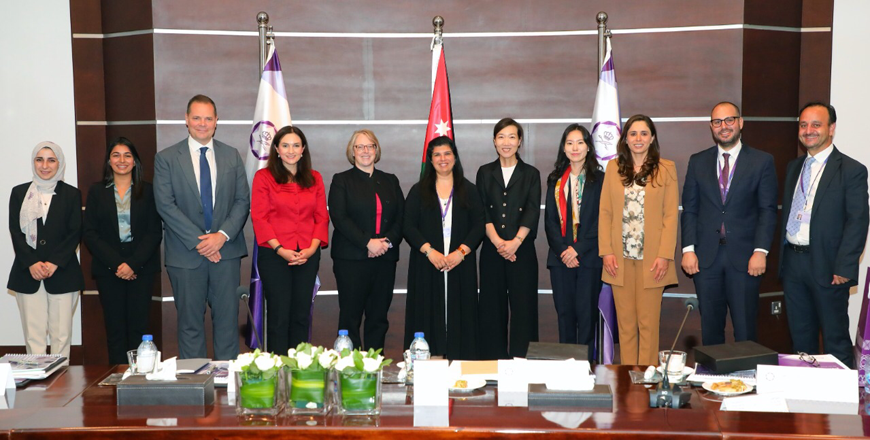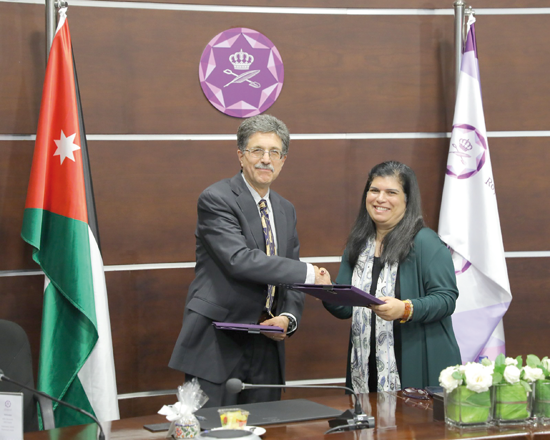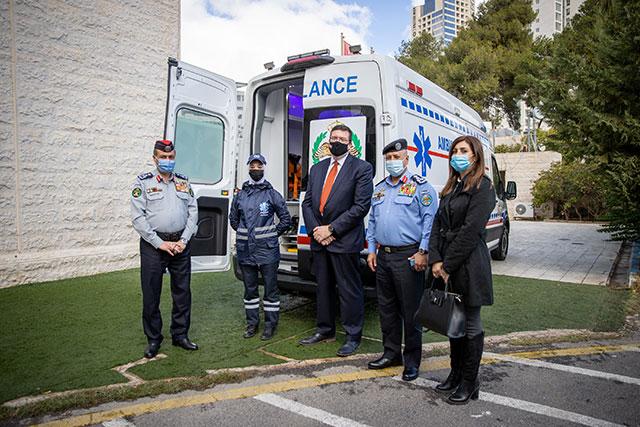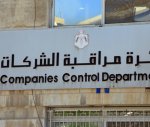You are here
EU project to improve response to CBRN hazards
By Raed Omari - Feb 25,2014 - Last updated at Feb 25,2014
AMMAN — The EU on Tuesday unveiled a 3.9 million euro project to strengthen the capacities of the relevant authorities in Jordan, Iraq and Lebanon in dealing with chemical, biological, radiological and nuclear (CBRN) hazards.
The assistance, granted through the EU Chemical, Biological, Radiological, Nuclear Centres of Excellence (EU CBRN CoE) Risk Mitigation Initiative, will be directed to the CBRN CoE regional secretariat in the Middle East, which is located within the premises of the Middle East Scientific Institute for Security at the Royal Scientific Society (RSS).
Launched in 2010, the CBRN CoE initiative aims at addressing the mitigation of and preparedness against risks related to CBRN material and agents as well as enhancing cooperation at national, regional and international levels, and developing a common and coherent CBRN risk mitigation policy.
The “Strengthening Capacities in CBRN Event Response and Related Medical Emergency Response under Strengthened CBRN Event Preparedness” project was launched at the RSS.
During the launching ceremony, EU Ambassador to Jordan Joanna Wronecka said the overall goal of the initiative is to improve the preparedness and response capacity of countries to deal with potential threats posed by the use of chemical, biological and radioactive materials.
“The EU provides funding based on the needs identified by the partner countries themselves. It is the first project entirely by the national focal points from Jordan, Iraq and Lebanon, with the support of their technical experts and under the umbrella of the centres of excellence,” Wronecka added.
Sharif Nasser Bin Nasser, head of the CBRN CoE Regional Secretariat in Middle East, the first of eight secretariats to be established globally under the European Union’s Centres of Excellence initiative on CBRN issues, said the project will “raise the safety and security of citizens in Jordan, Lebanon and Iraq from chemical risks and accidents”, describing CBRN risks as “indiscriminate to nature, recognising no boundaries and nationalities”.
Sharif Nasser is also the managing director of the Amman-based Middle East Scientific Institute for Security, which focuses on furthering scientific and technological solutions to challenges facing the region with a specific focus on CBRN issues.
The project will be implemented by the Polish Military Institute of Hygiene and Epidemiology in collaboration with the Military Institute of Chemistry and Radiometry, FIIAPP from Spain, and the Italian FORMIT Foundation and Insubria Centre on International Security.
The CBRN CoE network is currently present in more than 60 partner countries across the globe, grouped around eight regional secretariats: African Atlantic Façade, Central Asia, Eastern and Central Africa, Gulf Cooperation Council members, Middle East, North Africa, South East Asia and South East Europe, Southern Caucasus, Moldova and Ukraine.
The main goal of the network of regional initiatives is to develop methodology and guidelines, create an international network of CBRN expertise, facilitate cooperation among network members, establish secretariats to foster regional cooperation and support partner countries in creating their CBRN national teams.
Related Articles
AMMAN — The Royal Scientific Society (RSS) established a Chemical, Biological, Radiological and Nuclear (CBRN) Threat Office whose mission i
AMMAN — HRH Princess Sumaya, president of the Royal Scientific Society (RSS), on Sunday attended the second meeting of the Advisory Board of
AMMAN — The US Embassy’s Office of Diplomatic Security Anti-terrorism Assistance (ATA) programme on Thursday provided an ambulance to the Ci




















